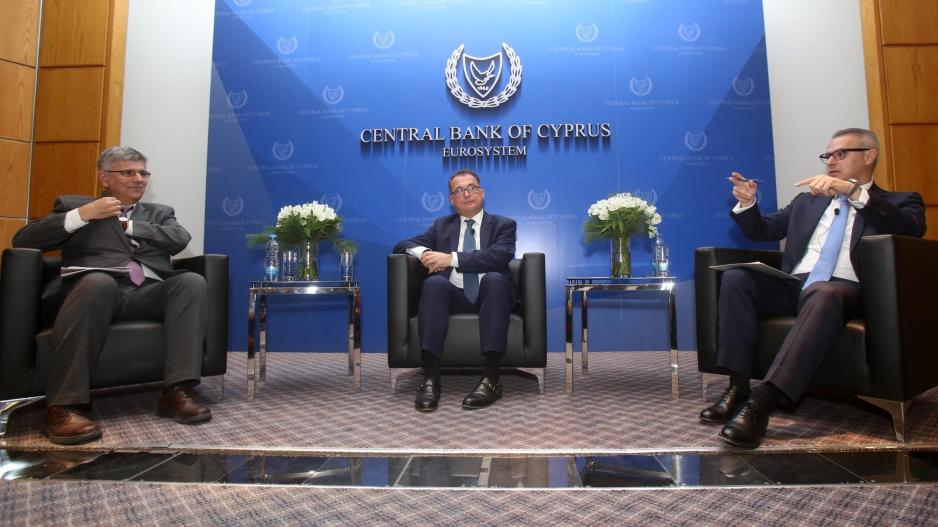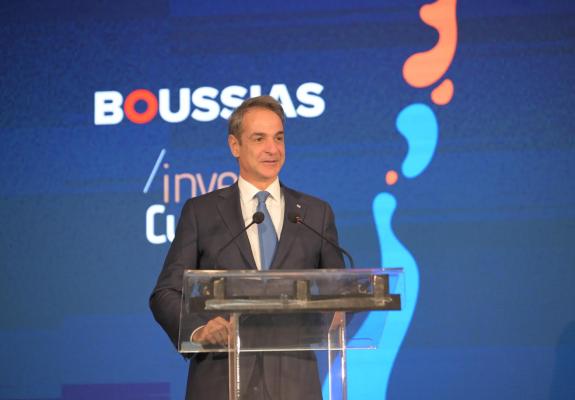Insights from Nagel and Herodotou on Inflation, Interest Rates, and the Path Ahead
Navigating Economic Stability and Monetary Policy
Joachim Nagel, President of the German Bundesbank, emphasized the necessity of the Eurosystem's continued tight monetary policy to combat strong price pressures. During an event in Nicosia, upon the invitation of Cyprus Central Bank Governor Constantinos Herodotou, Nagel highlighted the pivotal role of interest rates in controlling high inflation. He noted that the current interest rates, as assessed by the European Central Bank’s Governing Council, are likely to effectively bring inflation back to its target. However, he stressed the importance of maintaining these levels for a sufficiently long period.
Despite the current approach, Nagel suggested that the rate hike cycle might not have concluded. He stated, "Moreover, that does not necessarily mean that the current hike cycle is now over. Of course, it could be that, if the inflation outlook worsened, we might have to raise rates again. The opposite case – inflation returning much faster to 2% – seems much less probable to me."
Nagel warned against premature discussions of lowering interest rates. He clarified that the focus should be not only on the current rates but also on managing future expectations.
Reaffirming the ECB's dedication to lasting price stability, Nagel said, "The main effects of the Eurosystem’s policy tightening on inflation are yet to be seen. As underlying price pressures remain strong, we must stay the course. We should not loosen policy until we are certain of returning to price stability on a lasting basis." He compared inflation to a "greedy and stubborn beast," expressing confidence in the ECB's ability to effectively manage it.
Nagel emphasized the need for a coordinated approach with fiscal policy, advocating for a "decent fiscal policy" and urging European political leaders to collaborate. While acknowledging a recent dip in headline inflation, he cautioned against complacency.
He underscored the importance of returning to the 2% inflation target to maintain stable inflation expectations. Failing to do so could influence price-setting and wage-setting behavior, necessitating a stronger monetary response.
Looking ahead, Nagel outlined three guiding pillars for future decisions: assessing the medium-term inflation outlook, understanding the dynamics of underlying inflation, and evaluating the strength of monetary policy transmission. "As regards the transmission, I do not see an overtightening. The transmission across financial markets is currently effective. And the transmission to the real economy and inflation is progressing", he stated.
Addressing concerns about the ECB's monetary policy being too restrictive, Nagel remained confident, citing favorable conditions for a "soft landing."
He disclosed that the upcoming Governing Council meeting in December would consider new staff projections, which will be instrumental in shaping future monetary policy decisions.

In his speech, Constantinos Herodotou, Governor of the Cyprus Central Bank, lauded the ECB's recent monetary policy actions as a demonstration of its commitment to price stability. He emphasized the necessity of adapting policies to the changing economic landscape, always aiming for price stability in the euro area.
"The ECB's actions have been effective in steering towards the price stability objective, during these turbulent times, and have enhanced the credibility of our policy interventions. This credibility is fundamental in ensuring the continued effectiveness of our monetary policies and in maintaining the confidence of the markets and the public", he stated.
Herodotou stressed the importance of harmonizing fiscal and monetary policies in tackling inflation challenges. He emphasized that fiscal policy should support, not counteract, monetary policy.
Acknowledging the need to support vulnerable segments of European society, he also highlighted the importance of targeting productive sectors. This targeted approach is vital for maintaining social cohesion, he noted.
The Governor underscored the ECB's role in preventing a spiral of rising prices and wages, contributing to the euro area's economic stability. He also pointed out the need for policymakers to be prepared for challenges arising from the green transition, including the potential for prolonged high energy prices.
Herodotou highlighted the ECB's proactive approach, incorporating climate considerations into its latest monetary policy strategy review, which includes developing new macroeconomic models, introducing indicators for green financial instruments, and conducting climate stress tests for banks in the euro area.






